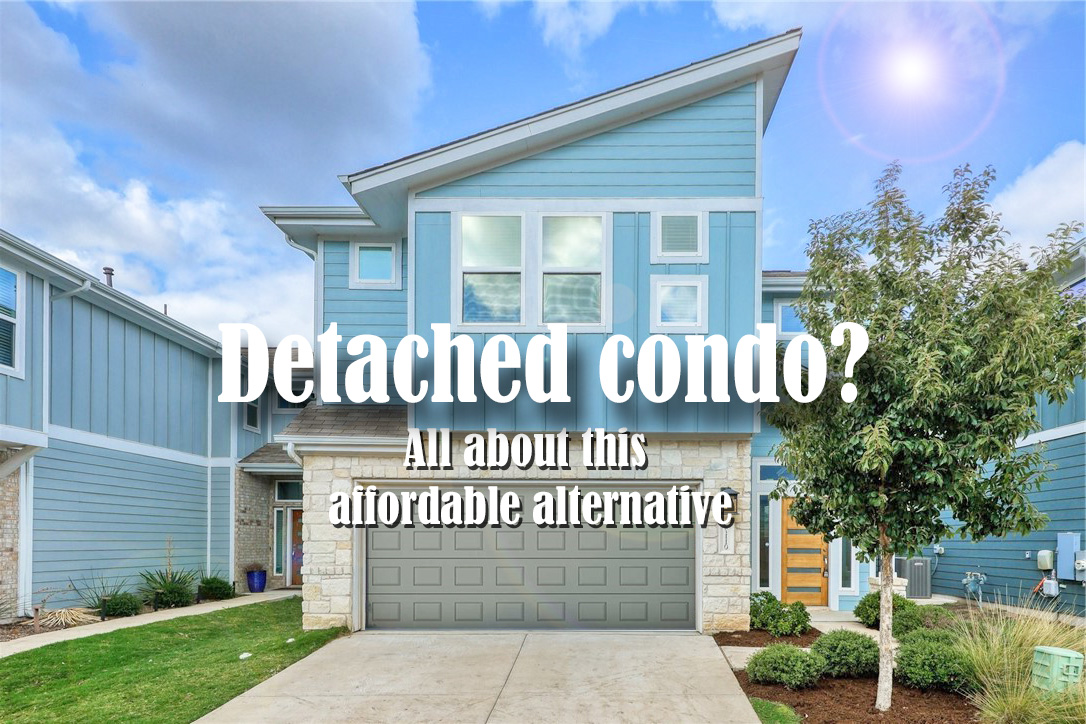Detached condo vs single-family homes. Detached condominiums are one of many types of housing. However, you must comprehend the real estate market and your options if you want to maximize your return on investment. Affordability is one of the pros of owning a condo.
What exactly is a condo?
A condo is a residential or housing complex made up of separate apartments, often known as a condominium. The apartments are all privately owned. The upkeep and repairs of each condo unit are the responsibility of the individual owner. Additionally, the owner is also responsible for ongoing condo association dues. The maintenance fees include upkeep of the exterior of the complex, building amenities, and common areas
What exactly is a detached condo?
Identical to a single-family home, a detached condominium is a standalone condominium. It offers the typical advantages of condominium living and is categorized legally as a condominium. Typically, you’ll find them grouped together in neighborhoods close to urban areas. Homeowner associations are common in communities.
There are various names for detached condos, including free-standing condos and ground condos. The purchaser of this kind of property does not have to worry about doing outside maintenance duties, unlike a single-family home. While individual owners are in charge of internal problems, the condo association is normally in charge of exterior building care. These errands could involve painting, trimming the grass, and roof repairs.
Detached condominiums come in a wide variety. Some are compact, like a cottage-style home with only two bedrooms. A detached condo, on the other hand, may be a sizable luxury residence with more than 2,400 square feet. Individual detached condos frequently have exteriors that are strikingly similar to or identical to one another. Some communities, though, give their respective proprietors a great deal more creative flexibility.
There are no connecting walls between units in a separate condo. Despite the fact that it can stand on its own, it nevertheless benefits from condominium living. Homes with no lot lines are an illustration of detached condos.
The benefits and limitations of a detached condo
Detached condominiums offer benefits and limitations, just like any other type of real estate.
Benefits
Affordable alternative- Detached condos are more cost-effective than many other real estate ventures.
Less upkeep- A condo is a popular option for people who desire the independence of home ownership but don’t want to worry about the maintenance that comes with it. A condo can be a suitable choice if you don’t want to worry about maintaining the yard, fixing the roof, or shoveling snow.
Community Amenities- Amenities will be improved for residents of the condo complex, who will have access to a range of facilities both within and outside the building. Some of the nicest amenities are frequently located close by and within easy reach in a standalone apartment. A dog park, swimming pool, gym, party room, parking garages, and other features may be among these amenities. There will frequently be a fitness center, so anyone who wants to stay in shape can do so without having to travel.

Additional sense of safety- Families and tenants believe condos to be a much safer alternative in general. The area has a larger population, making it much simpler to receive assistance if necessary.
Location location location- Detached condo complexes are frequently found in some of the best city neighborhoods, adjacent to tourist hotspots, educational institutions, dining establishments, retail establishments, and services.
Limitations
Strict HOA’s- While adhering to a set of norms should be regarded as advantageous, not everyone prefers to take the same course as everyone else. Owners of detached condominiums and apartment buildings are required to abide by the HOA’s bylaws. Pet restrictions and rental limits are two examples. In addition, you are required to pay monthly HOA dues for the maintenance of buildings and shared grounds.
Smaller square footage- Depending on the condo’s size and location, these fees can vary greatly.
Living in a condominium building might occasionally feel cramped and close in.
Lack of privacy- Condo owners must share the common areas. There is less privacy as a result, but this does improve the sense of community. Balcony invasions and noise problems can also occur in communal areas.
Single family home vs detached condo
In general, a single-family home will be more expensive than a condo. But sometimes people nevertheless decide to make such a purchase.
Projected costs- A detached single-family home will often be more expensive than a condominium. As a result of your ownership of the home and whatever land it sits on, they will also have a larger square footage. With such a benefit, you must account for additional expenses like property taxes and yard upkeep.
Form of ownership- A house has no common walls with any other residential or business structures; it is a free-standing building, similar to a detached condo. The owner of a house, however, also owns the ground it sits on and the surrounding property, so that is the distinction. A garage and front and back yards may be present on such property.
Restrictions and obligations- Owning a home gives you some degree of independence. There may not be any HOA rules pertaining to home ownership. There are no restrictions on the changes you can make to the building’s interior and exterior.
Regular upkeep- When you own a home, you will have a lot more maintenance to handle. You are in charge of both the building and the lot in addition to the real estate. Naturally, any improvements you make will boost the house’s worth with your labor. You must, however, remember to take into account the initial time and financial commitment.

Consider this…
Compared to a single-family house, a detached condo is a more cost-effective choice. However, how well the unit and communal areas are kept will determine how much of this type of property can be sold for in the future. A detached condo can be the best option if you want to make a new real estate investment. You will gain several advantages from choosing to reside there, including the amazing amenities and advantages at your disposal. Additionally, it provides a lot of options for rental revenue because tenants will be drawn to the advantages of living in a detached apartment.
Make sure the math makes sense before making an investment in a condo. This restriction is applicable to all investment properties, although condos are particularly affected. They can be challenging because you have to factor in additional expenses. Make that the condo will, on average, produce an appropriate cash flow over time, accounting for vacancy, maintenance expenses, and special assessments.




